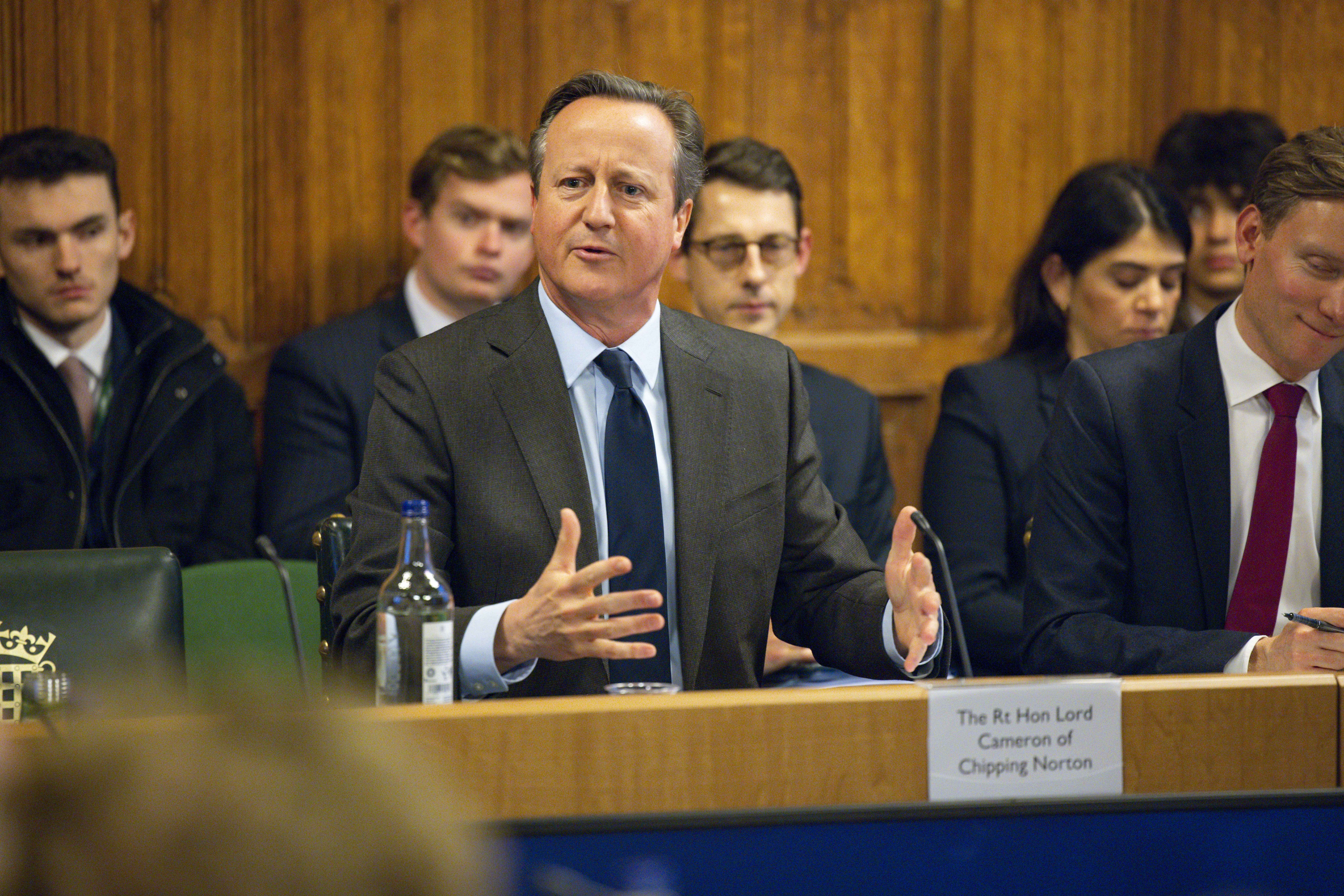Cameron stands firm on Palestinian state recognition after Tory backlash
The Foreign Secretary said Gaza and the West Bank needed a workable government from ‘day one’ of any peace deal with Israel.

Your support helps us to tell the story
From reproductive rights to climate change to Big Tech, The Independent is on the ground when the story is developing. Whether it's investigating the financials of Elon Musk's pro-Trump PAC or producing our latest documentary, 'The A Word', which shines a light on the American women fighting for reproductive rights, we know how important it is to parse out the facts from the messaging.
At such a critical moment in US history, we need reporters on the ground. Your donation allows us to keep sending journalists to speak to both sides of the story.
The Independent is trusted by Americans across the entire political spectrum. And unlike many other quality news outlets, we choose not to lock Americans out of our reporting and analysis with paywalls. We believe quality journalism should be available to everyone, paid for by those who can afford it.
Your support makes all the difference.Lord Cameron has defended proposing that the UK looks at recognising a Palestinian state after the suggestion faced backlash from Conservatives.
The Foreign Secretary told a Conservative Middle East Council reception in Westminster this week that formal recognition could help end the Israel-Hamas conflict and make a two-state solution in the Middle East “irreversible”.
Senior Tories, however, rallied against the idea in the Commons, with former cabinet minister Theresa Villiers saying bringing forward the recognition of a Palestinian state would “reward Hamas’ atrocities”.
Sir Michael Ellis, a former attorney general, said the move could risk equipping “dangerous actors” with the “trimmings and capabilities of a state”.
You have got to make the peace process better than the return-to-war process
But Lord Cameron said the move was designed to show the Palestinian people there was a “better future”.
Speaking to The Sunday Times, the former prime minister said his comments had been about preparing a Palestinian authority to have a “technically able government” ready in Gaza and the West Bank from “day one” of any peace deal.
“We need to start setting out the political horizon,” the senior Tory peer told the newspaper.
“We are trying to separate the Palestinian people from the terrorists that have been running their government in Gaza and the way to do that is to say there is a better future if you choose it.
“You have got to make the peace process better than the return-to-war process.”
Israeli prime minister Benjamin Netanyahu, who leads a right-wing government, does not support Palestinian statehood.
He stated in a press conference last month that he opposes US calls for the establishment of a Palestinian state when the conflict comes to an end.
His stance — repeated by Tzipi Hotovely, the Israeli ambassador to the UK — have been criticised by Western allies, including by Lord Cameron, who called them “disappointing”.
Lord Cameron said Mr Netanyahu’s push backs should not prevent allies from working on the details of how a Palestinian state could operate in practical terms, in order to create some “unstoppable momentum” towards a two-state agreement.
“I think if you look at Israeli politics at the moment, I think there is an enormous pressure for a pause in the fighting because people are so rightly concerned about the hostages,” he continued.
“While Bibi (Netanyahu) will tell you all the things he doesn’t want a Palestinian state to be, if you turn the question around and say, well, ‘OK, I hear that, but what could a Palestinian state be? Let’s work on that bit of the picture’.
“That, I think, is the way to make some progress. You have to deal with what is in front of you.”
Lord Cameron, who visited Lebanon on Thursday to see first-hand how the UK is working with the country to train Lebanese border regiments, said he thought there was a “reasonable chance” of securing a pause in the fighting between Hamas and Tel Aviv — a break that he believes can be turned “into (a) ceasefire”.
Hamas raids on southern Israel on October 7, in which about 1,300 people were killed and more than 240 kidnapped, sparked a renewed conflict in the Middle East.
Israel has retaliated with months of attacks on the Gaza Strip, killing and wounding thousands.
On Saturday, thousands of people took to the streets of London and Edinburgh to show support for Gaza and demand an immediate ceasefire.